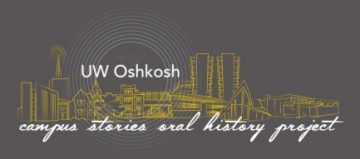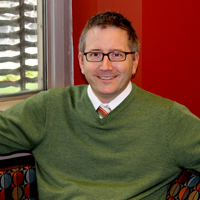 Students at the University of Wisconsin Oshkosh are collecting dozens of alumni, faculty and staff memories for the Campus Stories Oral History Project in advance of the institution’s sesquicentennial celebration in 2021-2022.
Students at the University of Wisconsin Oshkosh are collecting dozens of alumni, faculty and staff memories for the Campus Stories Oral History Project in advance of the institution’s sesquicentennial celebration in 2021-2022.
“Oral histories are important because they help us understand common experiences—like going to college or being a farmer—that rarely leave behind a paper trail,” said UW Oshkosh lecturer Jeffery Pickron. “Everybody who has attended, taught or worked at UWO has had a unique experience. Through the Campus Stories Oral History Project, we are developing a deeper understanding of our history.”
While traditional primary sources of historical information include government documents, newspaper stories and diaries of people who are famous or powerful, oral history interviews help historians understand the lived experience of everyday people.
“Oral history is a very important tool for historians because it allows us to create historical records where documents are unlikely to exist,” explained Pickron, who teaches the University Studies Quest III course: Oral History of the University.
In the past year, Pickron has taught the course twice, with students conducting and transcribing almost 100 interviews. He expects another 50 to be collected in the upcoming spring 2017 semester.
Through the process, the students learn about local history and the value of understanding the history that is all around them.
“They certainly come away with a very good appreciation for how all areas of the University work and how higher education has evolved in the United States,” Pickron said.
The students also acquire valuable interviewing and analytical skills as well as develop a professional manner.
“I think students are always surprised that it is much harder to do good interviews than they think,” he said. “It takes a lot of time getting these questions just right so that they are both analytical and conversational. This process requires excellent editing skills.”
At the end of each semester, the students create a life story presentation of their interviewee.
“In these stories students analyze the historical context of their interviewee’s experience and augment this analysis with audio clips and historical photographs,” Pickron said. “The most difficult part of these presentations is getting students to stay within the time allotted for their talk. Typically they are so excited to tell others about the stories of ‘my person,’ it is hard to get them to stop.”
 The oral histories will be used to develop programming for the UW Oshkosh sesquicentennial celebration. They also will help future researchers interested in the many diverse aspects of UWO’s history.
The oral histories will be used to develop programming for the UW Oshkosh sesquicentennial celebration. They also will help future researchers interested in the many diverse aspects of UWO’s history.
University Archivist Joshua Ranger said the initial interviews have been preserved in the project’s archives.
“Our next steps are to place interviews into a management system that allows us to sync the audio to the written transcripts and add descriptive tags,” he said. “This allows us to search across all of the interviews for key words and jump right to the point in the recording where that key word was found.”
The system will help in the analysis of the interviews and to share select interviews online.
In the coming semester, Pickron and Ranger are seeking to diversify the types of people the students interview.
“We seek more people from the professional colleges like nurses, educators and business professionals,” Ranger said. “We also want to hear from graduate students, nontraditional students, students of color, student-athletes and other who were active in extra-curricular activities like governance, clubs, Greek and residence life.”
